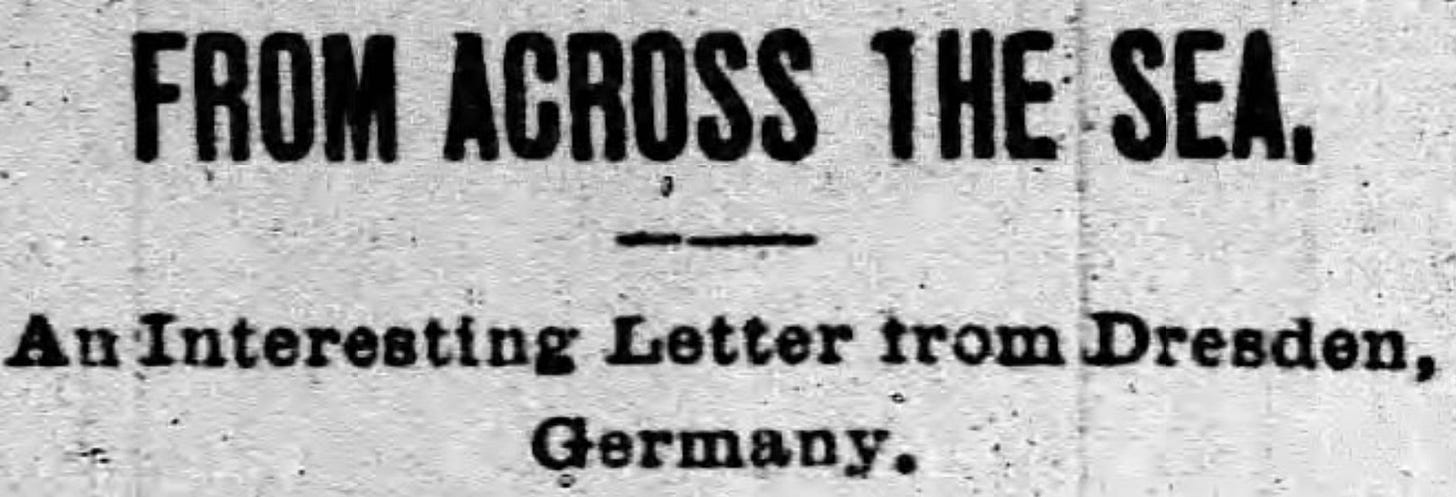🗞️ When “Artificial Intelligence” Meant Something Entirely Different in 1887 🎓📜
Long before computers existed, the term "artificial intelligence" appeared in Oconomowoc Free Press, April 30, 1887, but it meant something radically different from today's ChatGPT and neural networks.
In this 1887 letter from Dresden, Germany, an American correspondent reflects on the differences between Old World and New World societies. When discussing German military service, the writer notes: "the German government concedes much to artificial intelligence, if I may use the term, by requiring well educated men to serve only one year."
Here, "artificial intelligence" refers to formally educated or cultivated intelligence - the kind gained through academic schooling and institutional training. The writer contrasts this with the practical, experiential intelligence that Americans developed through active participation in democratic life and business.
The correspondent argues that this "artificial intelligence" - while valued by German institutions - was actually inferior to the natural, practical wisdom Americans gained from their more dynamic society. He observes that German soldiers, despite their extensive training, lacked "the perfect adaptability, fertility of judgment and resource" of American citizen-soldiers who learned by doing.
This usage reveals how "artificial" once simply meant "cultivated" or "formally developed" rather than "machine-based." The writer saw formal education as creating an artificial enhancement to natural intelligence - much like we might today distinguish "book smarts" from "street smarts."
It's a striking reminder that our modern concept of AI as machine intelligence is just the latest meaning of terms that have evolved dramatically over time.



